15 Surprising Data Brokering Statistics to Know in 2025
Data brokering companies collect and sell way more information than you think
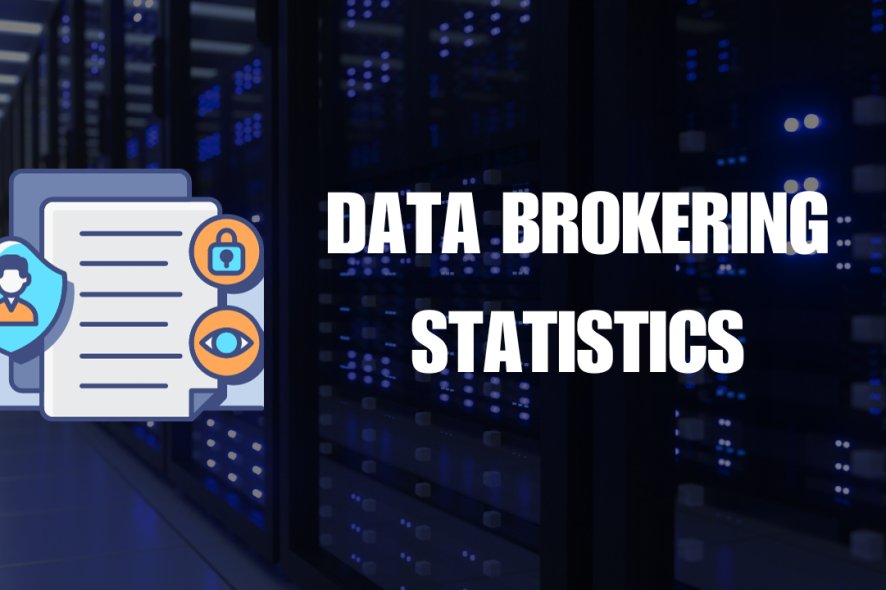
In whichever way you use the web, these data brokering statistics will make you think twice about what you lay on the line about yourself.
Whenever we’re online, we unknowingly share our personal information with others. In some cases, this is harmless.
However, much of the time, we’re allowing organizations to collect mass amounts of information to sell or share with others. This is known as data brokering.
The brokers round up our data and profit from its distribution. Many companies are then using it to create personal profiles of us.
Targeted ads are also a result of this. Even some employers, when considering job candidates, even turn to data brokers to purchase criminal history reports.
But, how big of an impact does data brokering really have on us?
Let’s find out by exploring some surprising statistics.
Eye-Opening Data Brokering Statistics
Check out these statistics which highlight the true extent of data collection and brokering in 2024:
- The data for 18 to 25-year-olds costs an average of $0.36
- One of the largest US data brokers, Acxiom, has over 2.5 billion consumer records worldwide
- A combination of data brokers has 90% coverage of US Facebook users
- 62% of organizations are aware of AI-powered recommendations, and 24% are currently deploying them
- Only 43% of people are aware of their right to be forgotten
General Data Brokering Statistics
The collection of personal data plays an important role in our day-to-day lives. This section reveals key information about the value companies put on our data.
1. The data broker market size is on track to reach $365.70 billion by 2029
(Source: Maximise Market Research)
Dubbed as the “oil of the 21st century”, data has become one of the most valuable commodities of our era.
As we continue to produce exponentially more data over the next few years, the total data broker industry revenue will grow from $268.73 billion in 2022 to $365.70 billion by 2029.
2. Almost 60% of internet users have more than 12 data points publicly available
(Source: Bitdefender)
A data point represents a single piece of information about a person. Your age, income, gender, education level, phone number, and email address are all examples of common data points that brokers collect.
59.35% of internet users have 12 data points publicly available, and the remaining 40.65% have between 2 and 11.
So, as you can probably guess, if you use the internet for any reason, your personal details can be viewed, shared, sold, or even stolen.
3. The data for 18 to 24-year-olds costs an average of $0.36
(Source: MacKeeper)
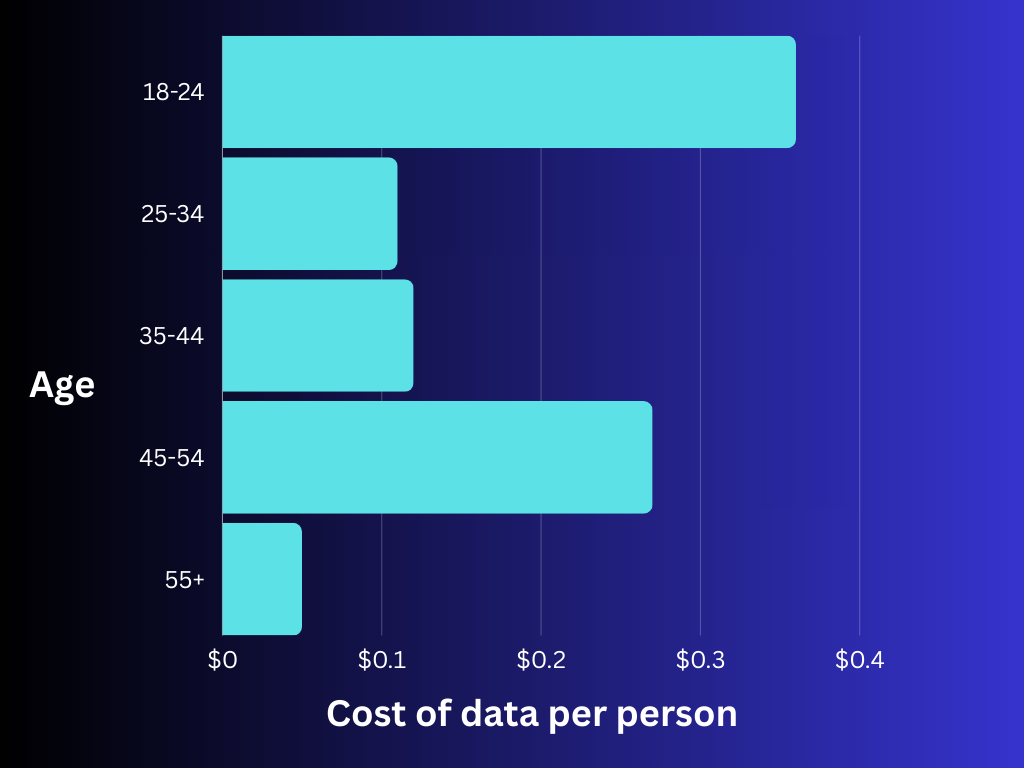
The data for younger people is the most expensive, with the total cost of the 18-24 demographic exceeding $14 million every year.
The least valuable data is for people over 55, costing just $0.05 per person. Typically, as you near retirement, your income and shopping habits will decrease, so companies have less use for your data.
Other information such as our gender, ethnicity, and income also impacts our data’s value.
For example, if you earn between $10,000 and $100,000, your data is worth $0.02 – $0.07. Interestingly though, your data’s value shoots up to $0.33 if you earn between $120,000 and $150,000.
4. 62% of organizations are aware of AI-powered recommendations, and 24% are currently deploying them
(Source: Acxiom Annual Trends Report)
In recent years, the adoption of artificial intelligence has skyrocketed, and many industries are using this technology to streamline their operations.
According to a survey, almost a quarter of organizations are already using AI algorithms to analyze customer data and suggest relevant products or services.
Data Broker Statistics
Data broker companies are the ones who directly profit from collecting and selling our sensitive information. Since these companies often buy and sell from one another, it’s impossible to accurately pinpoint how much of our data they own.
However, we can still use some key data broker statistics to put the degree of their operations into perspective.
5. There are over 4,000 data brokering companies worldwide
(Source: Web FX)
More than 4,000 data brokering companies are operating around the world. With the larger companies having data for millions of users, we can all assume that at least one of them knows information about each of us.
6. A combination of data brokers has 90% coverage of US Facebook users
(Source: LIX)
90% of US Facebook users have at least one data broker-provided attribute, meaning that their information is readily available for companies to purchase. The US has the highest Facebook user broker coverage in the world, closely followed by Australia with 81.3% coverage and the UK with 74.4%.
7. One of the largest US data brokers, Acxiom, has over 2.5 billion consumer records worldwide
(Source: Acxiom Global Data)
Acxiom is currently one of the leading data brokers in the US. This company boasts that it has over 2.5 billion records from consumers around the world. Acxiom claims to enable companies to “reach over two-thirds of the world’s digital population in a privacy-compliant manner” through its services.
8. Acxiom has a catalog of over 12,000 global data attributes
(Source: Acxiom Customer Data)
Acxiom also has a wide array of global data attributes that it sells to other companies. It can collect these through public records, purchase histories, internet activities, and commercial sources (such as retailers and credit card providers).
Common data attributes include:
- Demographic information
- Geographic data
- Behavioral data
- Health records
- Browsing habits
- Spending habits
- Social media activity
9. Experian generated $6,619 million in revenue during 2023
(Source: Experian)
Data brokers can make a whole lot of money from our data. As the world’s largest data broker company, Experian generated an incredible $6,619 million in revenue this year. Although not all of this was made from selling data, it still shows how lucrative this industry really is.
Data Privacy Statistics
Data brokers exist to collect and distribute sensitive information about us. Is this against our best wishes? Or do we simply not care about what happens to our data? Let’s take a look at some interesting statistics about the public’s perception of data privacy.
10. 80% of people want to know more about how their data is used
(Source: Surfshark)
Many of us feel that we’re in the dark when it comes to our data. In a 2022 survey, the majority of participants stated that online privacy is important to them and they want to know more about how their data is used.
Despite this, only 60% use tools to increase their privacy. Is this due to a lack of knowledge of privacy-protection tools? Or do most people believe that taking control of their privacy is simply not an option?
11. 21% agree that the most important activity an organization can do is refrain from selling their information
(Source: Cisco)
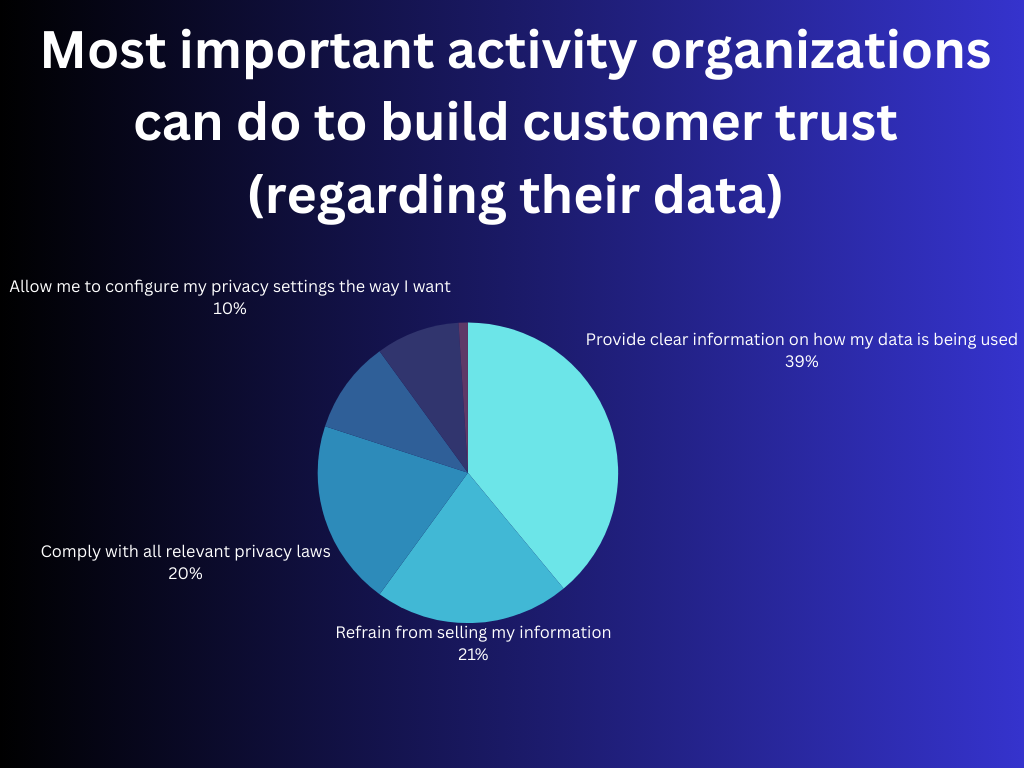
When it comes to building trust, over a fifth of survey participants agreed that the most important thing a company can do is refrain from selling their information.
However, not everyone is completely against their data being sold. 39% said that transparency (i.e. providing clear information on how their data is being used) is the most important factor for building trust.
12. Only 43% of people are aware of their right to be forgotten
(Source: Surfshark)
There are various regulators across the world that govern the way data can be used, processed, and stored. The GDPR, a European privacy regulator that focuses on data minimization, grants everyone the right to ask organizations to delete their personal data.
If certain criteria are met, an organization must erase the person’s data within a month. This is known as the right to be forgotten.
According to Surfshark’s survey, less than half of people are aware they can delete their digital footprint.
13. 63% of people block or routinely delete some or all cookies on their web browsers
(Source: Consumer Reports)
Cookies are text files that consist of pieces of data that help websites identify and remember you. Whenever you visit a website for the first time, you’ll see a pop-up that asks you to select your cookie preferences.
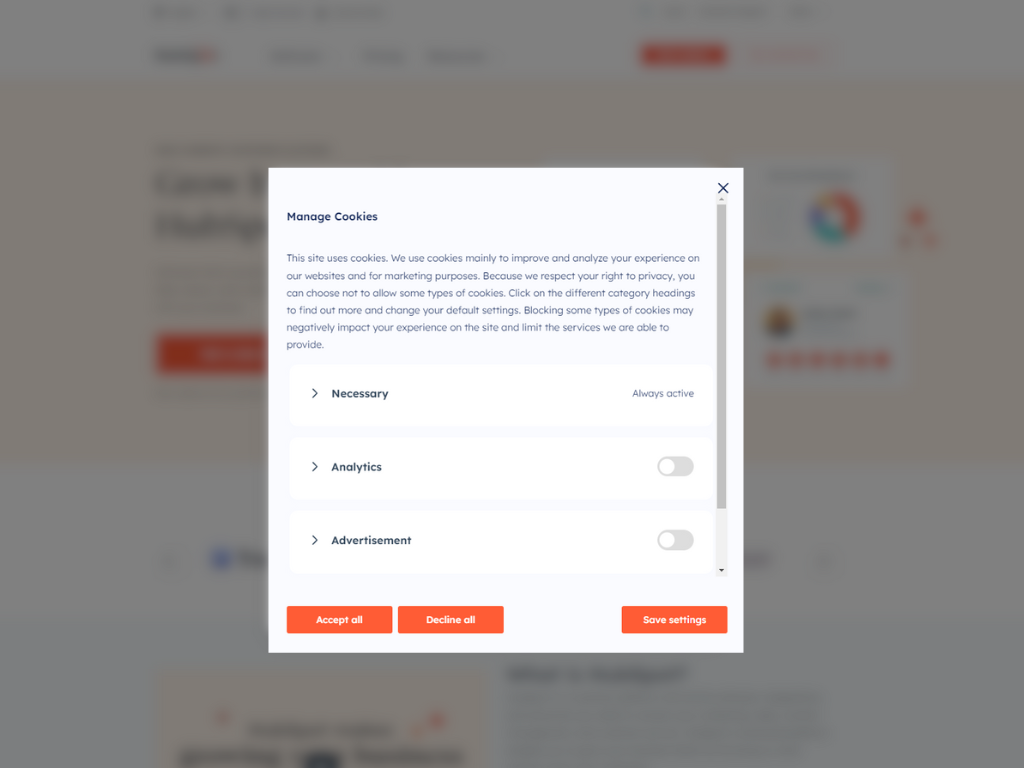
Cookies are useful as they help sites recognize each user and recall information such as their login details. Some even play an essential role in our online browsing experience.
Despite their uses, cookies can also be used to put our online privacy at risk. They collect a lot of sensitive data such as our browsing activity which may then be sold between companies.
If you want to increase your privacy and make it harder for websites to track your online behavior, you can choose to delete your web browser’s cookies. According to the 2022 Consumer Reports study, only 63% of people routinely do this.
14. 75% of people are concerned about the privacy of their personal data that companies collect and store
(Source: Consumer Reports)
In the same study, almost three-quarters of the participants claim they are concerned about the privacy of their personal data that is collected and stored by companies. Many of the remaining 25% said they were not concerned since they didn’t have anything worth stealing.
However, as other statistics show, any and all of our data is of value to companies.
15. 68% of people strongly support prohibiting the sale of personal data without consent
(Source: YouGov)
Regulators worldwide are in a cat-and-mouse race with data brokering companies. As technology advances, new data collection laws must be put in place to protect us.
A YouGov poll reveals that the majority of people support banning the sale of personal data without their consent. Additionally, 61% agreed that companies should be required to provide easy-to-understand explanations of their data collection and use practices.
Clearly, many of us want more to be done regarding the protection of our information. So, how come data brokers appear to have almost complete free reign when it comes to collecting and selling data?
Related:
Final Thoughts
Overall, our personal data is one of the most valuable commodities in the world. Companies are willing to spend millions each year to find out more about us and our activities.
These worrying data brokering statistics show that chances are, if you use the internet, there’s a data broker that possesses your data.
Although many of us are concerned about how our data is being used, few are actually taking steps to safeguard it.
Thankfully, there are some simple ways to prevent at least some of our information from landing in the hands of data brokers. For instance, using a VPN will conceal your IP address and make it harder for companies to trace your browsing activity back to you.
FAQs
Experian is the world’s largest data broker. This company collects information from over 1 billion people, generating millions of dollars in revenue each year.
The data broker market was valued at $268.73 billion in 2022 and is on track to grow to $365.70 billion by 2029.
The amount a data broker will pay for your data depends on various factors such as your age, gender, ethnicity, and income. For instance, the data for younger demographics is much more expensive than for older ones.
According to various salary research websites, data brokers can earn between $56,000 and $84,000, depending on their experience. Data brokering companies themselves can generate millions in revenue every year.
There are more than 4,000 data broker companies worldwide, including Experian, Acxiom, TransUnion, Oracle Data Cloud, and CoreLogic.
Sources
Read our disclosure page to find out how can you help VPNCentral sustain the editorial team Read more



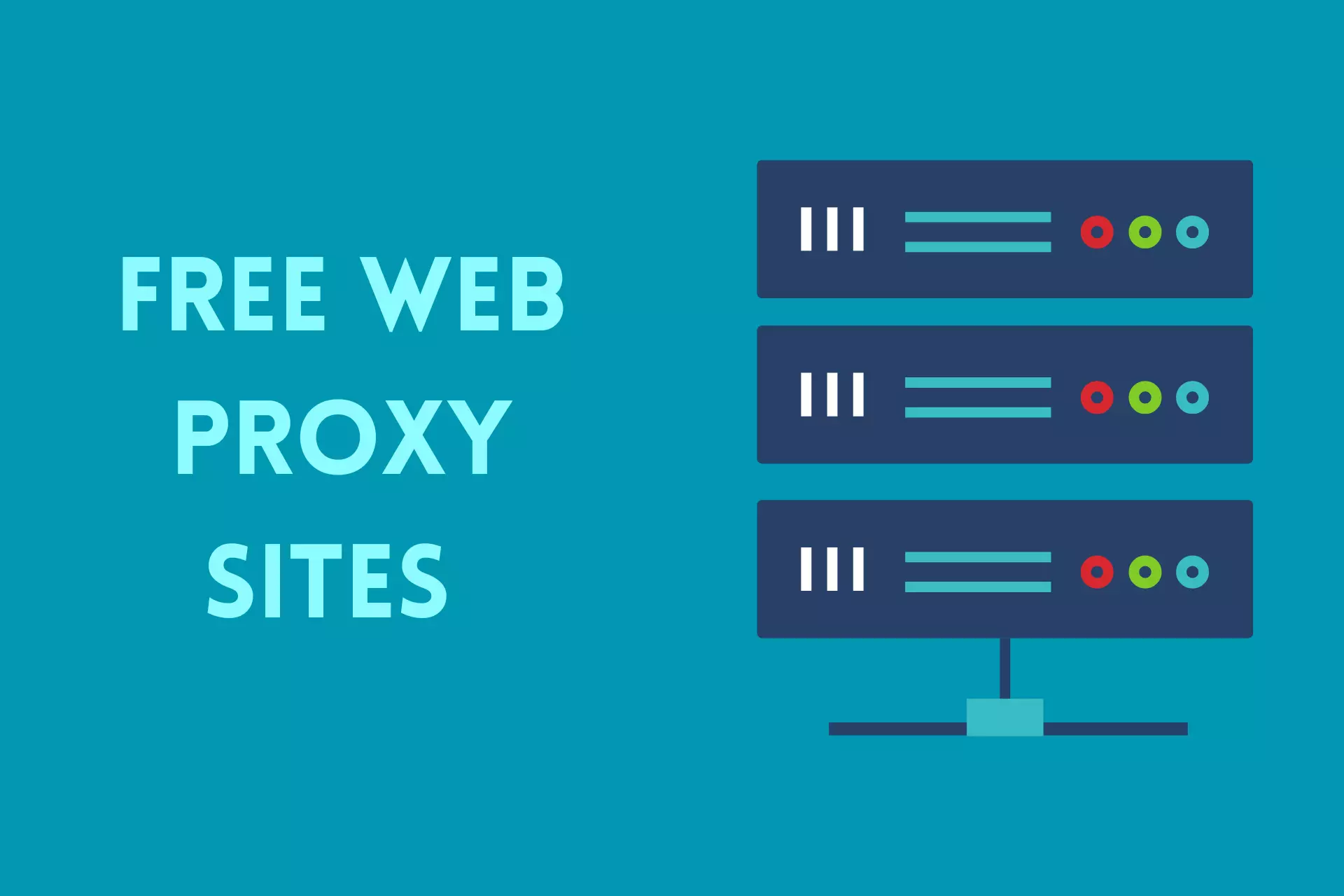


User forum
0 messages